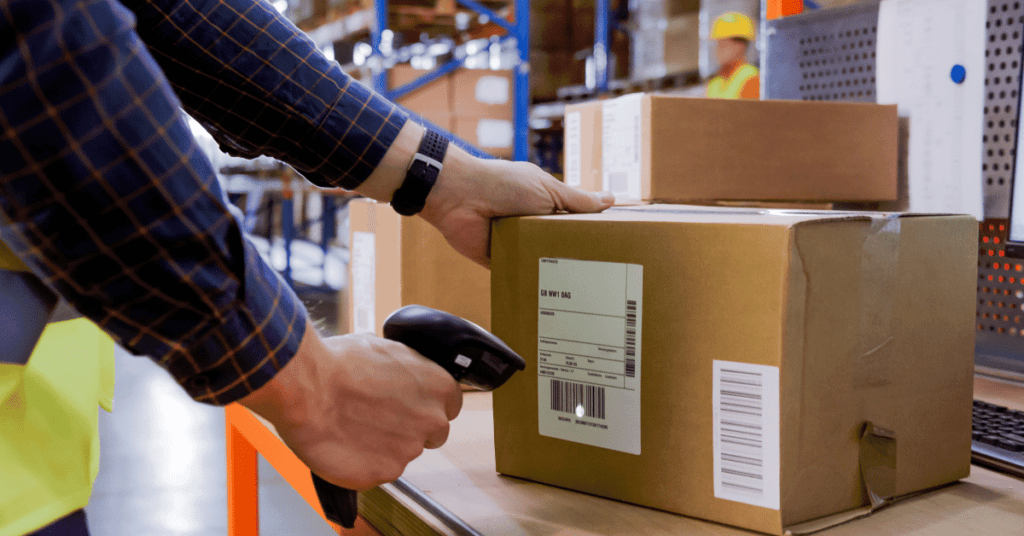
In the world of commerce and supply chain management, two distinct paradigms reign supreme: B2B (business-to-business) and B2C (business-to-consumer) fulfillment. These two approaches to managing the storage, processing, and delivery of products cater to entirely different clienteles and come with their unique challenges and dynamics. To shed light on the stark contrasts between these two fulfillment models, we delve into the intricacies of B2B and B2C fulfillment and explore how they stand apart.
What is B2B fulfillment?

B2B fulfillment, also known as business-to-business fulfillment, is a process in which a company or service provider handles the storage, processing, and shipment of products or goods for another business. This service is typically used by manufacturers, wholesalers, distributors, and other businesses to efficiently manage their supply chain and meet the demands of their business customers.
How B2B fulfillment works
B2B (business-to-business) fulfillment is a complex process that ensures the smooth flow of products from one business to another. Here’s a simplified overview of how works in five key steps:
Order Placement:
- The process begins when a business customer, such as a retailer, places an order with a supplier or manufacturer. This order could be for a variety of products or materials.
Order Processing:
- The supplier or manufacturer’s system processes the order, checking stock availability and verifying the order details. In many cases, this step is automated through electronic data interchange (EDI) for seamless communication between the two businesses.
Picking and Packing:
- Warehouse personnel pick the ordered items from inventory. These items are often bulk quantities, but the exact specifications depend on the order. The selected items are then packed according to the business customer’s requirements.
Shipping and Delivery:
- The supplier or manufacturer arranges for the shipment of the packed products to the business customer’s location. This can involve various transportation methods, including freight and dedicated carriers for larger quantities.
Invoicing and Payment:
- Once the order is successfully delivered, the supplier or manufacturer sends an invoice to the business customer, detailing the products, costs, shipping charges, and any applicable taxes. Payment terms and methods are typically agreed upon in advance and may include credit terms or other financial arrangements.
While these steps provide a simplified overview of B2B fulfillment, the actual process can be more complex, particularly in industries with specific regulatory requirements or unique customer demands. is crucial for businesses to maintain efficient supply chains, meet the demands of their customers, and build strong B2B relationships.
B2B fulfillment vs. B2C fulfillment: how they’re different

They are two distinct approaches to handling the storage, processing, and shipment of products, each tailored to the specific needs of their respective customer bases. Here’s how they differ:
Customer Base:
- B2B Fulfillment: B2B fulfillment is orient towards business customers. This includes manufacturers, wholesalers, distributors, and retailers who are purchasing products in bulk for resale or business use.
- B2C Fulfillment: B2C fulfillment serves individual consumers who are buying products for personal use. These orders are typically smaller in quantity but higher in frequency.
Order Size:
- B2B Fulfillment: B2B orders are typically larger in volume, often consisting of bulk quantities of products. These orders may involve pallets or multiple cases of items.
- B2C Fulfillment: B2C orders are generally smaller and consist of individual items or a few units of a product.
Order Processing:
- B2B Fulfillment: B2B orders often involve complex order processing systems, including electronic data interchange (EDI) for automated communication between businesses. Orders may be recurring or scheduled on a regular basis.
- B2C Fulfillment: B2C orders are typically initiate by individual customers through e-commerce platforms or retail websites. The order process is simpler and more diverse.
Packaging:
- B2B Fulfillment: B2B orders may require specialized or bulk packaging. Products are often packaged in a way that makes them suitable for resale by the business customer.
- B2C Fulfillment: B2C orders are package for individual consumers, often with an emphasis on attractive and informative packaging.
Shipping Methods:
- B2B Fulfillment: B2B orders may utilize various shipping methods, including freight and palletized shipping for larger quantities of products.
- B2C Fulfillment: B2C orders commonly use standard parcel shipping services for individual packages delivered to consumers’ homes.
Customer Communication:
- B2B Fulfillment: Communication with business customers often involves ongoing relationships, negotiation of terms, and customization of services to meet specific business needs.
- B2C Fulfillment: Communication with individual consumers is typically transactional and focused on order status, delivery updates, and customer service inquiries.
Returns and Exchanges:
- B2B Fulfillment: Returns and exchanges are less frequent in B2B, but when they occur, they can be more complex, often involving agreements and negotiations between the two businesses.
- B2C Fulfillment: Returns and exchanges are common in B2C, and the process is typically more straightforward, with established return policies.
In summary, B2B and B2C fulfillment differ in terms of customer base, order size, order processing, packaging, shipping methods, customer communication, and the handling of returns and exchanges. Businesses choose the approach that aligns with their target market and the unique requirements of their customers. Both types of fulfillment are integral to the global supply chain, serving distinct purposes and sectors within the economy.